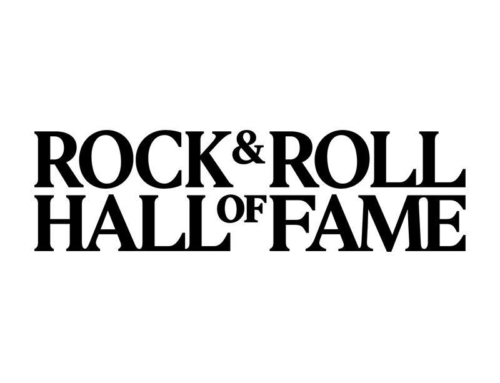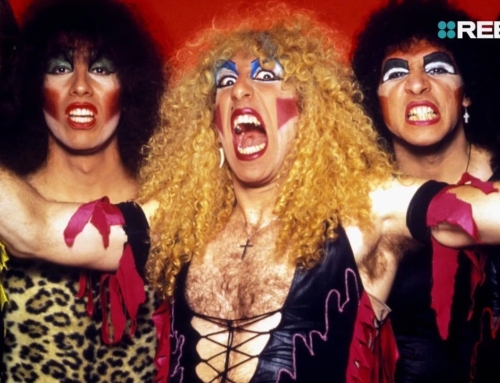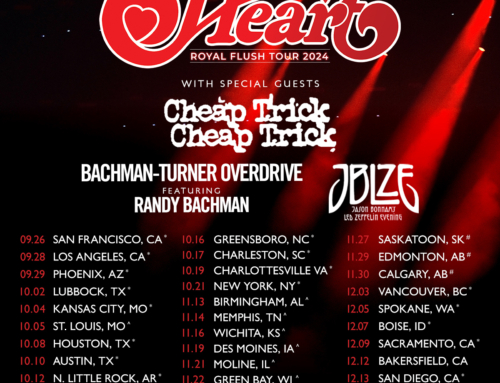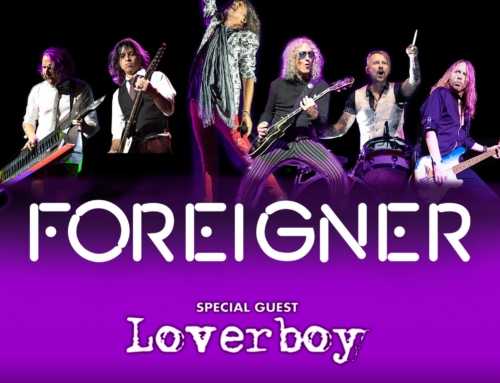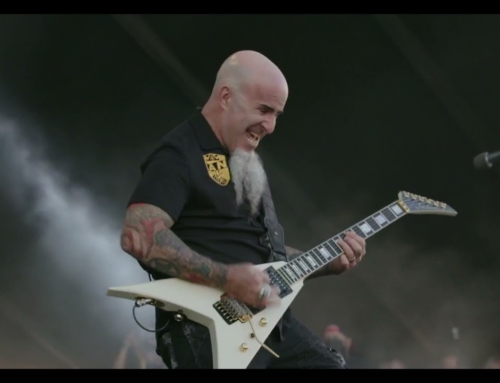In a new interview with Derek Scancarelli of Forbes, IRON MAIDEN guitarist Adrian Smith talked about his immediate reaction when he first found out that his bandmate, singer Bruce Dickinson, had been diagnosed with throat cancer back in late 2014.
“Nothing can prepare you for something like that,” he said. “It was an incredibly dark time. I suppose my immediate thought was that he’d probably beat it because he’s that kind of person. Plus, the first thing we do is find out the facts of his cancer: what stage is it? That’s very important. We found out it was treatable and in a relatively early stage. Although I think he’d had it when we were doing the album ‘The Final Frontier’ [2010]. I was there when he was doing vocals. I could hear it in his voice sometimes; he didn’t sound quite right. But we found out it was treatable. We tried to give him a bit of support, but really, what can you do? He had to go through it. He did and he beat it. It was quite incredible. He’s got such a strength of character. He’s never negative about anything. He’s always a very positive person. ‘If I can put my mind to it, I can do anything,’ sort of person. And he usually does. But we didn’t know about the band. Who knows about these things? But I thought he’d probably recover and thank God he did.”
Smith also reflected on getting really emotional at MAIDEN‘s first show of “The Book Of Souls” tour in 2016, when he watched Bruce take stage for the first time after overcoming cancer.
“I didn’t expect it at all,” Adrian said. “That is such a great intro to the show, the way he sings the intro to the song ‘If Eternity Should Fail’. When he did it live, the first time, I was actually in tears. I was completely choked up. I don’t know where that came from. But there he was. He finished and we were back on stage. It didn’t happen again. It only happened that once.
“To be quite honest with you, I had the same reaction when I saw MAIDEN after I’d left and I went to Donington [in 1992],” he continued. “I was standing at the side of the stage, Steve [Harris] said, ‘Come down and see us and get up and play with us.’ I thought it was a nice olive branch to keep things cool. But as I was watching them, the same thing happened. I was actually overcome with emotion. I had a couple of whiskeys. Then I got on stage and I was all right.”
Dickinson, who had a golf gall-size tumor on his tongue and another in the lymph node on the right side of his neck, got the all-clear in May 2015 after radiation and nine weeks of chemotherapy.
Bruce previously told iNews that he wanted to cover his cancer battle in his 2017 autobiography, “What Does This Button Do?”, to raise awareness of the condition, which affects people who often have no or minimal history of tobacco or alcohol abuse. The individuals with HPV-related oropharyngeal cancer who undergo treatment have a disease-free survival rate of 85 to 90 percent over five years.
During an appearance on the Swedish TV show “Malou Efter Tio”, Dickinson spoke about how his singing voice has changed following his cancer diagnosis six years ago.
“[It’s] a little bit different,” he said. “Two things are slightly different. One is my saliva, which obviously lubricates your throat a little bit, is a bit less than it used to be. Although, back ten years ago, if I had the same cancer, I wouldn’t be making any saliva. But now, I’m probably 70 percent, which is great. Thanks very much, everybody upstairs. [Laughs] And the other things is that I think that the shape of possibly the back of my tongue, which forms vowel sounds and things like that, might have changed shape slightly, because, obviously, it had a big lump in it, and the lump’s gone. So maybe the surface has changed shape. So I notice a few differences. Funnily enough, the top end of my voice is maybe even a little bit better than it was before. [Laughs]”
Dickinson said that he was given “the all-clear” by his specialists following an MRI scan after a course of chemotherapy and radiology.
“I was amazed,” he said. “My cancer was a 3.5-centimeter tumor in my throat and a 2.5-centimeter one in my lymph node, and that was the one that I could feel — that was the secondary one. But I did 33 sessions of radiation and nine weeks of chemo at the same time, which is fairly standard therapy for it. And it was gone. And I said to my oncologist: ‘What do you mean it’s gone? Where has it gone?’ And he said, ‘Well, your body just gets rid of it.’ A body is an amazing thing.”
Smith‘s memoir, “Monsters Of River & Rock”, was released in September via Virgin Books.
Adrian joined IRON MAIDEN at the end of 1980. He is the bandmember who has collaborated on the most side projects outside of IRON MAIDEN, as well as writing and recording a series of albums in the early ’90s, before rejoining the band.


